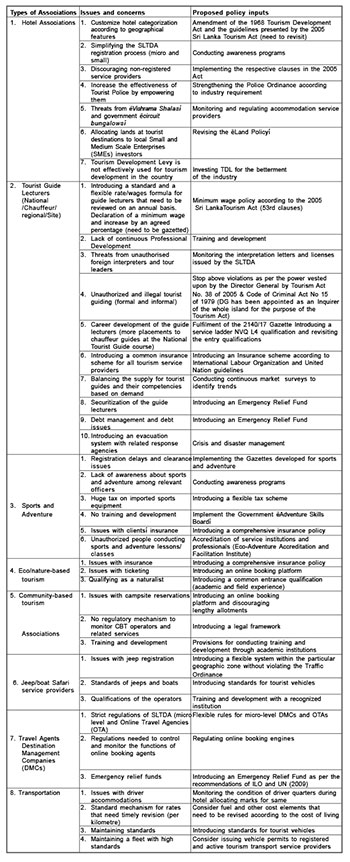Features
Proposed Sri Lanka Tourism policy should promote inclusiveness

By Dr. Manoj Samarathunga
The Ministry of Tourism is in the process of introducing a policy to Sri Lanka tourism for the first time in its official history of 56 years. During the last five decades, Sri Lanka tourism has witnessed many ups and downs despite few tourism plans implemented. This year the theme of United Nations World Tourism Organization’s tourism day is ‘Tourism for Inclusive Growth.’ Therefore, I believe the proposed tourism policy should act as a catalyst to promote inclusive tourism growth. Hence, this article critically evaluates empirical glitches in the tourism industry and forwards policy inputs to the proposed national tourism policy.
The United Nations Development Programme (2013) defined inclusive growth as the “economic growth that is distributed fairly across society and creates opportunities for all” (UNDP, 2013). However, it is questionable whether the benefits of tourism are equally distributed even hypothetically. Tourism is a social phenomenon, and mainly depends on public resources. Therefore, it is essential to practice fair and equal distribution of tourism benefits across all stakeholders.
Sri Lanka tourism industry is serviced by thousands of micro, small and medium scale service providers. One of the serious claims made by these stakeholders is that their voice is not represented at the Sri Lanka Tourism Development Authority (SLTDA). As a result, they are discriminated in many ways, including with regard to a fair wage, grants, training and development, marketing and insurance.

There is no doubt that the captioned members render an excellent service towards the upliftment of the tourism and hospitality industry. However, reserving a few seats in the Board of Management for the micro, small and medium stakeholders can further promote ‘inclusive tourism’ at the national level. The Tourism Ministry may consider the proposals forwarded by many other associations including Tourism and Hospitality Academics’ Association of Sri Lanka, Sustainable Tourism Forum, National Tourists Guide Lecturers’ Association, Chauffeur Tourist Guide Lecturers’ Association, Small Travel Agents’ Association, National Safari Jeep Association and Sri Lanka Eco-tourism Foundation.
On behalf on the aforementioned associations and other tourism associations, following policy inputs are suggested to the proposed Sri Lanka Tourism Policy:
Dr. Mahesh Priyadarshana is the founder of ‘Sustainable Tourism Forum’ of Sri Lanka and the immediate past president of Sri Lanka Institute of National Tourist Guide Lecturers (SLINTGL). According to him, the Tourism Ministry has to pay more attention to the growing concerns of tourism industry stakeholders, especially micro, small and medium sector, as they are the frontline staff who make face-to-face encounters with foreign tourists. Contented tourism stakeholders are vital as they significantly contribute to the tourism value chain in Sri Lanka.
It is also proposed:
1. to introduce an ‘Emergency Relief Fund’ for tourism SME sector to financially support the industry during an emergency;
2. to appoint an ombudsman on behalf of the tourism service providers;
3. to introduce a pension scheme for the operational level service providers;
4. to introduce an insurance scheme for tourism service providers;
5. to amend the Sri Lanka Tourism Act and at least reserve two Directorships, and at least two tourism advisory committee memberships to the micro, small and medium scale tourism and hospitality entrepreneurs;
6. to consider the possibility of introducing a special ‘employee provident fund’ for service providers based on a tripartite contribution: self, employer, government;
7. to promote fair trade policies;
8. to plan and launch effective tourism promotional campaigns with the participation of a wide stakeholder group;
9. to introduce a common entrance ticket policy that encourages tourists to stay at a destination for a longer period;
10. to encourage regional tourism stakeholders to participate in tourism fairs.
By considering above suggestions, the proposed ‘Sri Lanka Tourism Policy’ will be able to promote ‘Tourism for Inclusive Growth’ respecting the Sustainable Development Goals of the United Nations.
(The writer is a Senior Lecturer at the Rajarata University, Faculty of Management Studies. He could be contacted at manoj.susl@gmail.com)